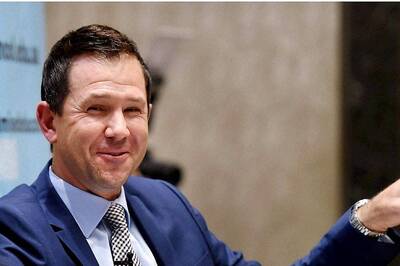
views
Ahmedabad: Nowhere in the Constitution of India has any power been assigned to the Prime Minister’s Office (PMO), former president Pranab Mukherjee said at the Indian Institute of Management, Ahmedabad, on Saturday.
Mukherjee, who was delivering a lecture on ‘Articulating Policy and Institutional Agenda for Future Transformation of India’, said: “Civil servants, politicians and parliamentarians know that the PMO has emerged as a very powerful institution, but according to our Constitution, the office has no powers assigned to it.”
Clarifying that he “holds no grudge against the Prime Minister’s office”, Mukherjee said he gave the example “only to stress on the need to decentralise powers for building effective institutions”.
Mukherjee, who was answering students’ questions on the lack of powers of local self-government bodies, said: “Too much concentration of power lies in the hands of the Centre. In political vocabulary, there is a word called PMO or the Prime Minister’s Office. But, in the text of the Constitution comprising 415 articles and 12 schedules, I do not find anywhere that any power has been given to the PMO. It does not even have any mention in the Constitution. Therefore, how did it emerge?”
He further stressed on the need for bureaucracy to adapt to the changing times. He said, “The bureaucracy has the capacity of creating a hierarchy in its own way. But we fail to understand that it will not only push its boundaries, but will also eat our entire energy. There is a joke that the only motion in the administrative services is promotion. The bureaucracy has made a substantial contribution to India’s development, but we will have to adapt to the changing times.”
Citing reports of international agencies like the World Bank, Mukherjee said by 2022, India will be the largest supplier of workforce in the world and agencies have coined the word “demographic dividend” for India. However, this demographic dividend could turn into “demographic disaster if we are not able to provide skilled workforce”. “This country will have to produce 500 million strong workforce by 2022,” he added.
The former president also stressed on the need for research and singled out the Indian Institutes of Technology (IITs) for its paucity of local research. “With no grudge against IIT students getting good jobs in MNCs, I ask, how many of them are spending time on research in this country? Do we need an IIT graduate to promote a brand of a multi-national company? After 1933, no Indian scientist has received the Nobel Prize for original research work in India. We will have to invest six per cent of the GDP in education,” he said.



















Comments
0 comment